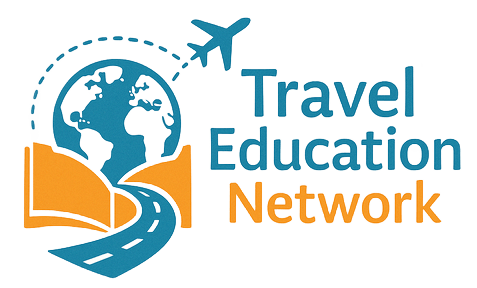Jobs in the Travel Industry: Remote, Freelance, and Full-Time Career Options
Dream of a career that lets you explore the world? The travel industry offers incredible opportunities, from flexible remote work and freelance gigs to stable full-time positions. Discover how you can become a travel advisor, writer, photographer, or even work in IT while traveling the globe. Learn how to become a digital nomad, combining work and leisure, and explore the growing demand for remote jobs. Start your adventure today and find the perfect travel career path for you!
Important information

- The travel industry offers remote, freelance, and full-time jobs, catering to various work styles and preferences.
- Remote travel jobs are increasing due to technology and the demand for flexible work arrangements. Essential needs for remote work are reliable equipment, employer consent, and detailed planning.
- Freelancing in travel provides flexibility and control over projects and clients. Popular freelance travel roles include writer, photographer, and accountant.
- Full-time travel positions offer stability and benefits. Examples include travel advisor, flight attendant, cruise ship staff, and au pair.
- Developing relevant skills, certifications, and networking are key for career advancement in the travel industry.
Understanding Jobs in the Travel Industry: Remote, Freelance, and Full-Time Career Options
The travel industry offers diverse career paths, including remote, freelance, and full-time positions. Remote work provides flexibility and location independence, allowing you to work from anywhere in the world. Freelance roles offer project-based work with control over your schedule. Full-time positions within established companies provide stability and benefits.
Types of Travel Careers
- Remote work: Offers flexibility and location independence, allowing you to work from anywhere.
- Freelance roles: Provide project-based work with control over your schedule.
- Full-time positions: Offer stability and benefits within established companies.
Common Travel Roles
- Travel advisors.
- Customer service representatives.
- IT professionals.
These positions exist across various sectors, including airlines, hotels, travel agencies, and tour operators. Some roles even specialize in specific destinations or activities.
The Growing Demand for Remote Jobs in the Travel Industry
Remote work is reshaping the travel industry. Companies are increasingly adopting flexible work arrangements, leading to a rise in remote work opportunities. With a stable internet connection, professionals can work from anywhere in the world, benefiting both employers and employees. Companies gain access to a wider global talent pool, while employees enjoy increased flexibility and a better work-life balance. This transformation is driven by technological advancements and a growing demand for work-life integration. Travel professionals can now manage bookings, provide customer support, plan itineraries, and handle marketing remotely, changing how the travel industry functions. This new paradigm allows travel professionals to experience the world while working, blurring the lines between work and leisure. This trend is expected to continue as technology improves and more companies recognize the benefits of remote work.
Freelance Opportunities in Travel: Combining Work and Leisure
Travel professionals, such as writers, photographers, agents, and event planners, often enjoy the freedom of freelancing. This allows them to select projects and clients that align with their interests, creating a fluid blend of work and leisure. Setting their own hours and working remotely provides unparalleled flexibility, while simultaneously offering the chance to experience new cultures and earn a living. It’s a truly exceptional career path.
Full-Time Positions: Stability in a Dynamic Industry
Looking for a stable career with travel opportunities? Consider full-time travel positions. Travel advisors and flight attendants, for example, enjoy structured schedules and often receive travel perks.
Remote Jobs: Flexibility and Travel
Remote work offers incredible flexibility, allowing you to work from anywhere and travel often. Popular remote career paths include IT and customer support, frequently outsourced to a global workforce. However, this lifestyle has key requirements: reliable equipment, employer approval, and meticulous planning are essential for success. The growing “digital nomad” lifestyle takes remote work further, combining it with continuous travel, and has become an increasingly popular option. Here’s a step-by-step guide to embracing the digital nomad life:
Step 1: Choose a Skill in High Demand. Develop a skillset marketable for remote work, such as programming, writing, or design. This ensures more job opportunities.
Step 2: Secure Reliable Equipment. Invest in a quality laptop, noise-canceling headphones, and a portable Wi-Fi hotspot for seamless connectivity.
Step 3: Plan Your Finances. Create a budget that considers travel costs, accommodation, and living expenses in various locations.
Step 4: Find Suitable Accommodation. Research co-living spaces, hostels, or short-term rentals that cater to digital nomads.
Step 5: Embrace the Community. Connect with other digital nomads online or in person for support, advice, and shared experiences.
Remote Work Essentials: Equipment, Approval, and Planning
Essential gear for remote work while traveling includes:
- A reliable laptop,
- A mobile hotspot for internet access,
- Noise-canceling headphones for focus,
- A portable charger.
Some roles may also require a high-quality webcam and microphone.
Before your trip:
- Secure your employer’s approval,
- Discuss travel plans, work schedule, and destinations with your supervisor.
Thorough planning is essential for a successful work-travel experience.
During your trip:
- Establish a dedicated workspace to maintain productivity,
- Create a detailed itinerary to stay organized,
- Clearly communicate your availability to clients and colleagues.
Remote-Friendly Careers: IT Jobs and Customer Support
Many IT professionals enjoy the flexibility of working remotely. These include:
- software developers,
- network engineers,
- customer support representatives.
Customer support roles often involve assisting clients via phone, email, and chat.
The travel industry also offers numerous remote opportunities. These are particularly found in:
- supporting online booking platforms,
- travel agencies.
These types of positions are ideally suited for remote work.
Traveling While Working: The Digital Nomad Lifestyle
Digital nomads embrace a lifestyle of remote work and global exploration, enjoying incredible flexibility and cultural immersion. Their careers span diverse fields, from IT and writing to customer service. Success hinges on reliable internet access and comfortable accommodations, enabling productivity from anywhere. Many gravitate towards cities with robust infrastructure, seeking a blend of work and leisure. Careful planning and adaptability are essential, particularly when navigating changing time zones. This unique path seamlessly integrates work and travel.
Freelance Opportunities: Work from Anywhere
Freelance accountants can manage finances from anywhere with an internet connection, enabling them to work remotely and even travel while earning.
This offers immense freedom.
Travel writers, too, enjoy this location independence, sharing stories and working on books from the road.
Similarly, freelance photographers can capture stunning travel images and sell them to agencies or clients, blending their passion for travel with flexible work.
Exploring the world and earning a living is a tangible possibility with these freelance careers.
Freelance Accountants: Balancing Books from Tropical Destinations
Imagine working as a freelance accountant from a Balinese beach, the Maldives, or even the Caribbean. You’d manage financial records and provide accounting services entirely online, combining professional fulfillment with the excitement of travel. It’s a lifestyle that perfectly blends work and exploration.
Writing Careers: Capturing Stories on the Road
Dreaming of a career that combines travel and storytelling? Writing could be your ticket. Whether it’s travel writing, blogging, or journalism, these fields offer incredible chances to explore the world and share your adventures. Not only will you discover new places and cultures, but you’ll also experience significant personal growth. The flexibility to tell diverse stories is another major perk. Consider these exciting career paths:
Travel Writing
Become a modern-day explorer, crafting captivating narratives about your journeys. Share your experiences, insights, and tips with a wide audience, inspiring others to embark on their own adventures.
Blogging
Create a personal platform to document your travels and connect with fellow adventurers. Share your unique perspective, build a community, and potentially earn income through advertising or sponsored content.
Journalism
Report on global events, travel trends, and cultural phenomena. Use your storytelling skills to inform and engage readers, shedding light on important issues and inspiring change.
Photography: Capturing the World Through Your Lens
Freelance travel photography is a fantastic career for those who crave both creative freedom and thrilling adventures. Imagine capturing unique experiences in diverse landscapes and cultures, expressing your artistic vision while discovering new places. This rewarding path offers flexibility, but it also requires dedication and honed skills. Mastering your camera and composition are essential for success in this unique blend of art and adventure. For aspiring travel photographers, consider these essential steps:
Step 1: Invest in Quality Equipment.
A reliable camera, lenses, and accessories are your tools of the trade, enabling you to capture stunning images in various conditions.
Step 2: Master Photography Fundamentals.
Develop a strong understanding of composition, lighting, and exposure to create compelling visuals that tell a story.
Step 3: Build a Portfolio.
Showcase your best work through a curated online portfolio, highlighting your unique style and the range of your skills.
Step 4: Network and Market Yourself.
Connect with other photographers, travel bloggers, and potential clients to build relationships and promote your services.
Step 5: Embrace Continuous Learning.
Stay updated with the latest photography trends and techniques to refine your craft and stay competitive in the field.
Full-Time Positions in the Travel Industry
A career in travel offers exciting possibilities for growth and stability. The travel sector caters to a wide range of skills and interests, offering diverse roles such as: travel advisor, flight attendant, cruise ship staff, and au pair.
Travel Advisor
Travel advisors craft personalized journeys for their clients.
Flight Attendant
Flight attendants ensure passenger safety and comfort in the skies.
Cruise Ship Staff
Specialized staff manage onboard activities and hospitality.
Au Pair
This role offers childcare experience with cultural immersion in a new environment.
If a travel career appeals to you, explore these varied options.
Travel Advisors: Crafting Memorable Experiences
Travel advisors curate bespoke journeys, handling every detail for leisure and corporate trips. Their expertise unlocks VIP perks and personalized guidance, plus they expertly manage unforeseen hiccups. This career often provides flexibility, allowing advisors to work remotely and connect with a global clientele. Personal travel experience is a major asset, enabling them to craft unique and memorable itineraries. For instance, an advisor familiar with Southeast Asia can offer invaluable insider tips. Strong organizational skills are crucial for managing intricate travel plans, while excellent communication fosters strong client relationships, ultimately creating unforgettable travel experiences.
Benefits of Using a Travel Advisor
- Bespoke itineraries: advisors create personalized trips tailored to your interests and needs.
- VIP perks: access exclusive amenities and upgrades thanks to advisor connections.
- Expert guidance: receive personalized recommendations and support throughout your journey.
- Stress-free travel: advisors handle unexpected issues, ensuring a smooth experience.
Key Skills of a Successful Travel Advisor
- Personal travel experience: firsthand knowledge enhances itinerary creation and provides valuable insights.
- Strong organizational skills: efficient management of complex travel arrangements is essential.
- Excellent communication: building rapport with clients ensures satisfaction and repeat business.
Flight Attendants: Seeing the World from Above
A flight attendant’s job offers a unique blend of adventure and service. Exploring diverse cultures and vibrant cities is a core perk, alongside ensuring passenger safety and comfort. This combination makes it a desirable career path for travel enthusiasts.
Cruise Staff: Exploring New Destinations at Sea
Working aboard a luxurious cruise ship offers the unique opportunity to explore exotic ports while providing a wide range of services to passengers. Cruise staff members play a vital role in creating an unforgettable cruise experience. Entertainment directors orchestrate vibrant performances, hospitality staff serve delicious meals, and shop assistants help with duty-free purchases. During their shore leave, staff members also have the chance to discover the destinations themselves.
Au Pairs: Cultural Immersion Through Childcare
Being an au pair offers a unique cultural exchange, providing childcare for families abroad while experiencing personal growth. Immersion in a new culture allows au pairs to learn customs and traditions firsthand, often leading to improved language skills.
Career Development and Job Search in the Travel Industry
Understand current travel industry trends. Researching the latest trends can help you identify in-demand skills and target your job search effectively.
Boost your career prospects with certifications and targeted training programs. These credentials can significantly enhance your resume and demonstrate your expertise to potential employers.
Cultivate strong relationships with both clients and suppliers. Building a strong network is essential for success in the travel industry.
Explore job boards, company websites, and industry events for potential opportunities. Actively searching across multiple platforms will increase your chances of finding the right job.
Network with industry professionals. Networking can open doors to unadvertised job opportunities and provide valuable mentorship.
Navigating Job Listings and Employment Trends
Ready to launch your job search? Navigating today’s evolving market is essential, especially with the rise of remote work, particularly in the travel sector. Interested in a remote career? Craft a solid plan, whether you’re pursuing freelance gigs, a full-time position, or another arrangement. Explore job boards, company websites, and tap into your professional network for potential opportunities.
Evaluate your skills and interests. Identify your strengths and passions to target suitable remote positions.
Optimize your online presence. Update your resume and LinkedIn profile to highlight relevant experience and remote work capabilities.
Explore job boards and company websites. Search for remote positions in the travel sector and other industries aligning with your interests.
Network with professionals. Connect with people in your field to discover unadvertised opportunities and gain valuable insights.
Tailor your applications. Customize your resume and cover letter for each position, showcasing your unique qualifications and enthusiasm.
Travel Agent Training and Certification
Want to turn your passion for travel into a career? Travel agent training programs can make it happen. These programs provide you with the essential skills needed to succeed, covering topics such as worldwide destinations, travel regulations, booking systems, and customer service. Earning certifications like the CTA or CTC can significantly enhance your credibility and job prospects. While a degree in hospitality, tourism, or business can be beneficial, practical experience is highly valued by many employers. Internships and entry-level positions offer invaluable hands-on learning, giving you a competitive edge in this exciting field.
Essential Skills Acquired Through Training Programs
- knowledge of global destinations,
- understanding of travel regulations,
- proficiency in booking systems,
- expertise in customer service.
Boost Your Credentials
- Earn certifications like CTA or CTC to enhance credibility,
- Gain practical experience through internships and entry-level roles,
- Consider a degree in hospitality, tourism, or business for added advantage.
Building Client and Supplier Relationships
Strong client relationships are crucial for repeat business and referrals. Building these connections relies on clear communication and responsiveness to their needs, demonstrating a genuine commitment.
Industry events offer invaluable networking opportunities to connect with clients, fostering these vital relationships.
Positive supplier partnerships are equally important for smooth operations and can even unlock exclusive deals. Nurturing these partnerships requires clear communication and responsiveness to their needs, showing a genuine commitment.
Industry events provide valuable networking opportunities to connect with suppliers, strengthening these essential partnerships.














